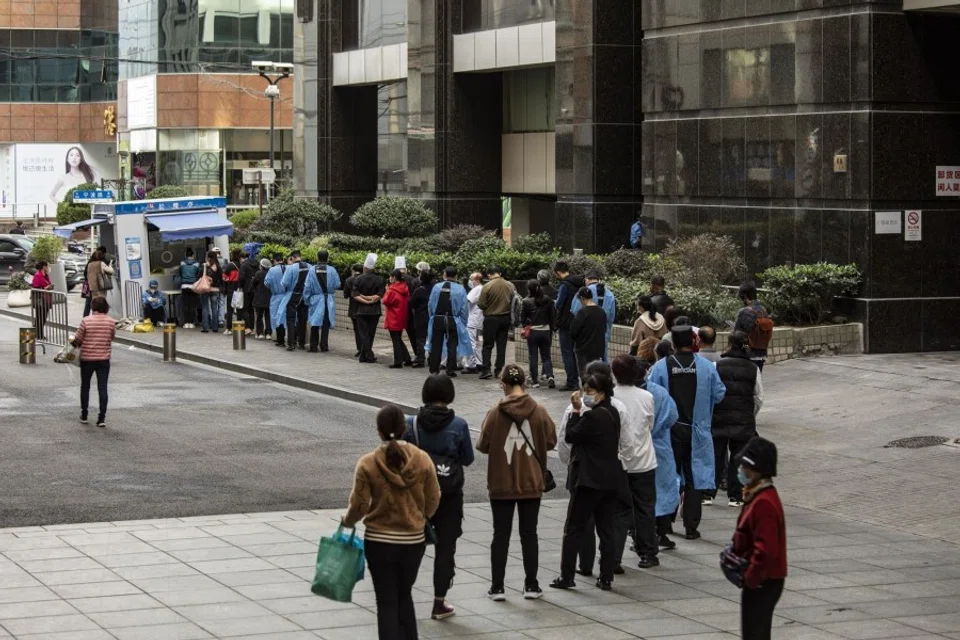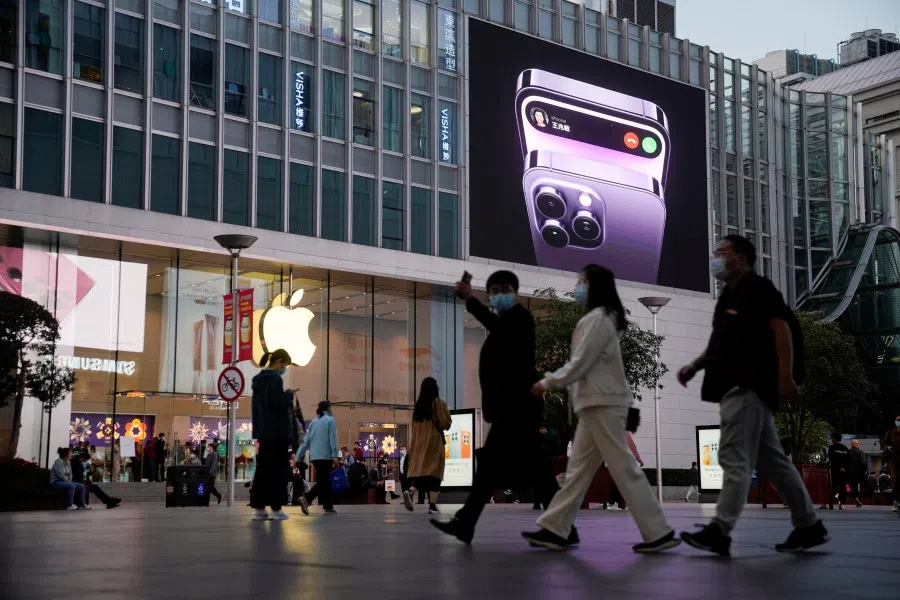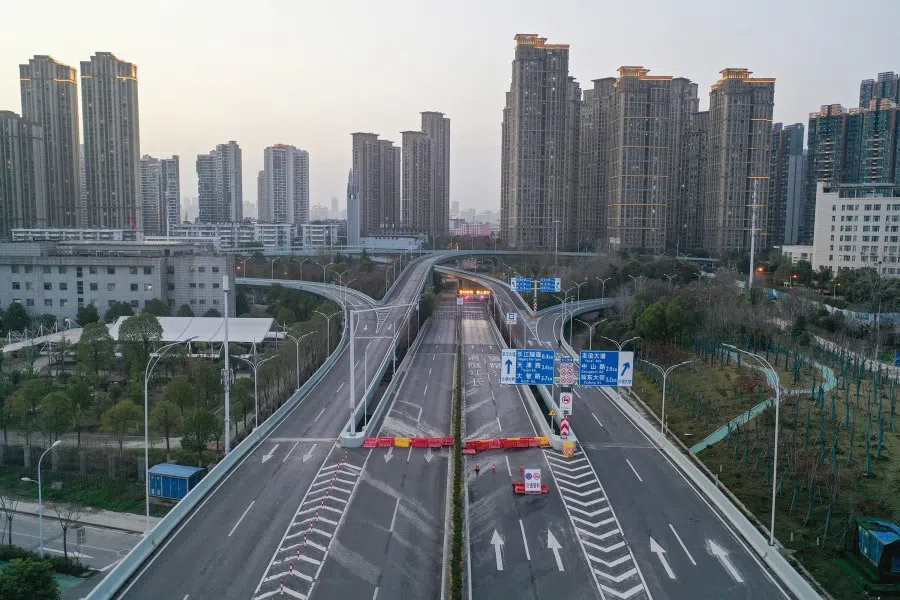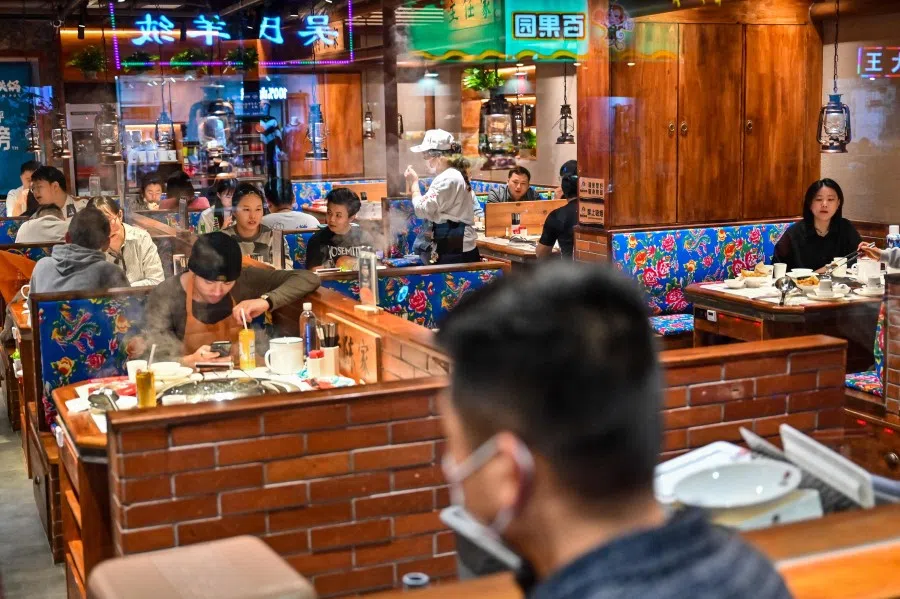Why 'China model' for modernisation cannot be replicated in other countries
China has often highlighted the success of China-style modernisation, including during the recently concluded 20th Party Congress. Researcher John Lim Chuan-Tiong looks at how policies have been implemented in China, and questions whether China's model can be replicated in other nations and whether people outside of China would want to replicate such a system.

After the 20th Party Congress of the Chinese Communist Party (CCP), the entire nation has routinely entered a time of comprehensively studying and understanding "the spirit of the CCP Party Congress".
The party congress report has highlighted that "Chinese modernisation offers humanity a new choice for achieving modernisation". During a press conference, Sun Yeli, deputy head of the Publicity Department of the CCP Central Committee, stated that China will not import other nations' development models or export its model; however, it welcomes the international community to "learn about or emulate China's experiences and practices".
Party system as the precondition?
There have been several waves of discussions on the "China model", which have gained momentum since China's emergence in the 21st century. With the conclusion of the 20th Party Congress and the international community concerned about China's foreign policy, Sun's statement will most likely trigger discussions on how the "China model", as well as China's new national strategies and foreign policy direction, will impact the world. These warrant our attention.
One observation is that the party congress report has shed light on the statement that "Chinese modernisation offers humanity a new choice for achieving modernisation". I believe that two significant messages are inherent in this new discourse.

First, "modernisation" here is in its traditional sense, mainly referring to the economy. Specifically, it includes the "four modernisations" - in industry, agriculture, science and technology, and defence - which were proposed by Zhou Enlai in his twilight years and officially driven forward by Deng Xiaoping.
After 40 years of reform and opening up, and having "risen" in the past 20 years, it is not an overstatement that the living standards in China's first- and second-tier cities are approaching or have attained modernisation. Evidently, it is overly modest to argue that China remains in the "early stages of modernisation" when objectively it has practically transformed into a modern nation.
... is it necessary to establish a CCP-led governance system to replicate the "China model"? Why have the remaining communist and Leninist party-led nations not modernised as quickly as China?
Second, China's successful modernisation is described as a "new choice" as it differs from what Europe and the US perceive it to be. The Western economic development model is essentially the implementation of economic stimulation policies based on market principles and the rule of law. Developing nations either adopt import substitution industrialisation or formulate export substitution strategies to achieve industrialisation and modernisation. Although China has relied on the latter for successful development, the context is that it is due to the CCP and astute leaders such as Deng Xiaoping and Xi Jinping, as well as the appropriate implementation of "socialism with Chinese characteristics".
Consequently, several questions ensue. For example, is it necessary to establish a CCP-led governance system to replicate the "China model"? Why have the remaining communist and Leninist party-led nations not modernised as quickly as China?
Even China, in the 30 years prior to its reform and opening up, did not demonstrate clear signs of a process towards modernisation. If it was due to the CCP's subsequent new thinking upon which the new policies brought about outstanding economic achievements, would it seem viable only for the few remaining socialist nations to emulate?
Assuming we disregard China's party system as the precondition, is the "China model" worthy of emulation by other nations in response to major problems that confront humanity?
The spread of the Covid-19 pandemic offers an analysis of the "China model" in three phases.
Mainland China's style in pandemic control
The spread of the Covid-19 pandemic offers an analysis of the "China model" in three phases. The first phase is marked by the outbreak in Wuhan, which was initially concealed by the local government that failed to promptly notify the citizens to take precautions to prevent its spread. This led to a number of incidents such as the huge banquet for thousands held on 18 January 2020 and the uproar over whistle-blower Dr Li Wenliang.

These were followed by the unprecedented Wuhan lockdown, further rendered controversial by Wuhan Diary (《方方日记》), an online, first-person account of life in Wuhan by Chinese writer Fang Fang, which was later translated and published. However, when the world was subsequently severely affected by the spread of Covid-19, China's lockdown strategy and zero-Covid policy were indeed highly effective, earning praise from the international community, including the World Health Organization. Many Western nations affirmed China's efforts in controlling the spread of Covid-19.
In the second phase, at the expense of lockdowns of cities and communities, China's efforts to curtail the spread of Covid-19 were also impressive. However, even Singapore with its strict discipline and Japan with its remarkable self-management were unable to emulate and implement the same lockdown measures, let alone the US and European nations that pride themselves on freedom and human rights.
When the Omicron variant took its toll on the world at the end of 2021 in the third phase, people realised that the variant was highly transmissible but less virulent and gradually regarded it as endemic like the seasonal flu. As strict quarantine and restriction measures were lifted, nations began to reinstate their pre-Covid border policies for international travel in the second half of 2022. However, China's refusal to "live with the virus" means that its extremely harsh lockdown measures continued.
We observe that in reality, at the height of its effectiveness in the second phase, this model can only work in mainland China and not even in Hong Kong.
China persisted with its zero-Covid policy, with lockdowns in cities and regions such as Xi'an, Shenzhen, Changchun, Jilin, Shanghai, Chengdu and Tibet. In particular, the community tragedies caused by the Shanghai lockdown shocked the world. Have other nations emulated China's unique model for Covid-19 prevention and control, with its lockdown measures? We observe that in reality, at the height of its effectiveness in the second phase, this model can only work in mainland China and not even in Hong Kong.
Can it be replicated?
China's economic miracles since its reform and opening up, including the "Shanghai speed", have indeed contradicted the previous mainstream Western political view of the relationship between economic and political developments. This view holds that successful economic development will lead to the emergence of the middle class in society, demanding many reforms that will ultimately lead to political democratisation. On the contrary, China's robust economic development has strengthened the system's legitimacy and ensured the government's continuity.
This article questions the replicability of the "China model", to which history has shown that it is not possible.

This article questions the replicability of the "China model", to which history has shown that it is not possible.
The model of China's four decades of reform and opening up can, at best, influence the rare few nations with socialist systems, such as Vietnam. In fact, in this decade of China's emergence to become the second largest economy after the US, no non-socialist nation emulated China's political and economic systems to achieve successful modernisation.
In addition, should modernisation be defined only in terms of economic power and living standards? It should also entail the rule of law, information transparency, the society's diversity and openness, and the safeguarding of the individual's rights. Without these other elements, how can it be attractive for nations with different systems to take China's path to modernisation?
As discussed in this article, it is proven that China's ongoing zero-Covid policy does not resonate with the world. How will the international community take to the political power consolidation in China after the 20th Party Congress? Will China's "successful" model, due to its unique circumstances and system, really provide the world with a "new choice"? Critical doubts remain after the 20th Party Congress.
This article was first published in Lianhe Zaobao as ""中国模式"如何提供"新选择"?".





